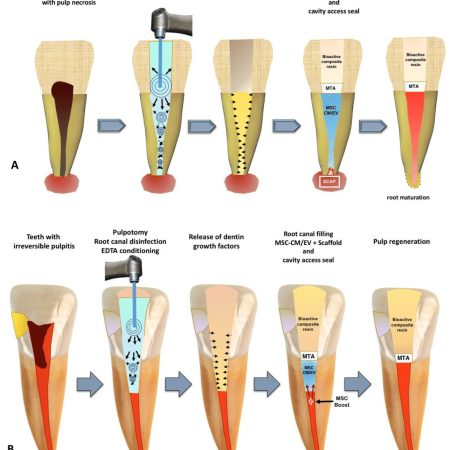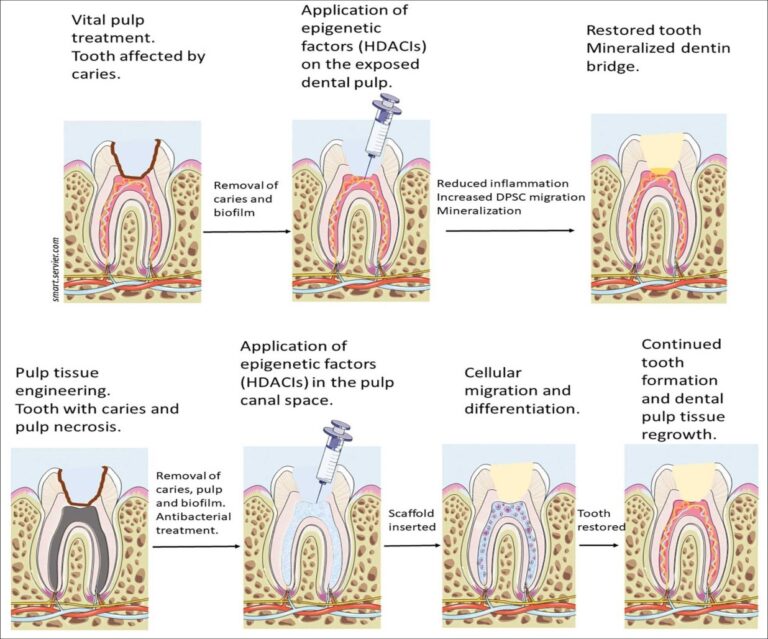Advanced Treatment Options
Regenerative Endodontics
Regenerative endodontics is an emerging field in dentistry that aims to restore the health and function of damaged dental pulp, particularly in immature permanent teeth with pulpal necrosis or incomplete root development. The traditional treatment for such cases was root canal therapy, which involves the removal of the infected or necrotic pulp and filling the root canal with an inert material. Regenerative endodontics, on the other hand, focuses on revitalizing the damaged pulp tissue and promoting the natural healing process. The procedure involves disinfecting the root canal system, removing any necrotic tissue, and placing a biocompatible scaffold material into the canal space. The scaffold acts as a framework for the growth of new pulp-like tissue.
To facilitate tissue regeneration, different approaches can be used, such as the use of stem cells, growth factors, and biomaterials. Stem cells can be sourced from the patient’s own tooth, such as the dental pulp or apical papilla, or from other sources like the bone marrow. These stem cells have the potential to differentiate into different types of dental tissues, including pulp cells, dentin, and blood vessels. In addition to stem cells, growth factors can be applied to enhance tissue regeneration. Growth factors are proteins that stimulate cell proliferation, differentiation, and tissue formation. They can be derived from the patient’s own blood or obtained from other sources.
Some of the key components of regenerative endodontic procedures may include:
- Disinfection: The root canal system is thoroughly cleaned and disinfected to remove bacteria and debris that may hinder tissue regeneration.
- Blood clot formation: A blood clot or scaffolding material is introduced into the root canal space to provide a matrix for tissue regeneration. This clot can contain growth factors and stem cells that promote the regeneration of pulp tissue.
- Sealing the root canal: The root canal is sealed with a biocompatible material to prevent reinfection and promote the isolation of the regenerating tissue.
- Follow-up treatment: Regular follow-up visits are necessary to monitor the progress of tissue regeneration and ensure the success of the procedure.
Regenerative endodontics has shown promising results in the treatment of immature teeth with pulp necrosis, which were previously considered poor candidates for conventional root canal treatment. By promoting the regeneration of the pulp-dentin complex, regenerative endodontics aims to restore the tooth’s function, enhance root development, and maintain natural aesthetics.


